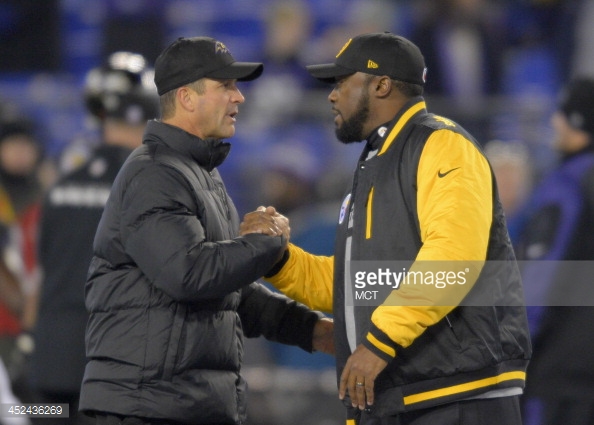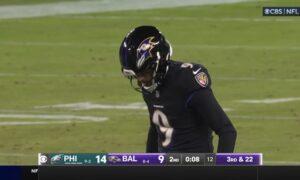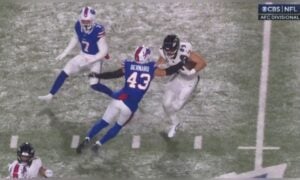Covid-19 has far from run its course, but it has in many ways left at least a semi-permanent mark on the way that we live our lives for the foreseeable future. We still don’t know what the future holds, but some have found that necessity has led to better ways of doing things, and in some cases, we may not go back to how things were beforehand.
Evidently, at some point within the relatively near future, the game of football is going to have to determine whether or not that includes in-person Spring workouts. The NFLPA has already advocated for the removal of OTAs, which are voluntary in the first place, arguing that last season’s on-field results show them to be unnecessary. Baltimore Ravens head coach John Harbaugh, one might say, disagrees.
“If he’s talking about not practicing our players, that would be a colossal mistake”, he said earlier this week when asked about a remark made by commissioner Roger Goodell about virtual offseason activities. “How many young quarterbacks do we have in the National Football League, right now, that are starting? And how many are going to be coming into the league in the next three or four years? And if you think you can just go to training camp and develop as a quarterback, that’s fantasyland”.
“You see when quarterbacks go out there who aren’t prepared or just aren’t good enough or not ready, how that looks in games. There will be a lot more of those games if you put those young quarterbacks out there without the proper preparation, and that goes for the wide receivers, the tight ends and all those guys, and the offensive line – no matter what [Browns center and NFLPA president] JC Tretter says. It’s fine for him; he’s been in the league [nine] years”. Tretter wrote the open letter advocating for the end of OTAs.
There aren’t a lot of Ravens fans on this board, and we often have plenty to say about Harbaugh, but he deserves credit where it’s due, and he’s certainly a knowledgeable and passionate advocate for the game of football, and for his players as well. He brings up a good point about how the reduction of offseason activities shifts both the personal and financial responsibilities of players’ training onto them.
“To go off somewhere on your own and pay your own money to go somewhere and think you’re going to train and get yourself ready when you’re a second-, third-year, fourth-year player, that’s unfair, and it’s wrong”, he said. Many, many players now rely on offseason coaches unaffiliated with the team to work on their game.
“The quality of the game is really important. The quality of the product, if you want to look at it from a business standpoint, is really important”, he went on. “NFL fans are accustomed to seeing really good football, and they’re not going to be OK with these young players not being prepared and not being ready to go out there and be successful”.
Another point that he brings up is how the notion of a reduction in physical learning opportunities goes against efforts to make the game safer. “They want to see this taught; they want to see the technique that way; the want to keep the head up, the eyes out; tackle the right way; block the right way”, he said.
“100% for it. That takes practice. That takes work. That’s not just something that you just snap your fingers, and all of a sudden, guys know how to do techniques”.
I relied so much on Harbaugh’s own words here because I really couldn’t have put it much better. There is no doubt in my mind that in-person Spring workouts still have tremendous value, especially for the lower ranks of players—the same players who know that their NFL life cycle will be short, and so don’t hold out for the long-term goals that well-off and experienced players like Tretter have the luxury of tackling.








